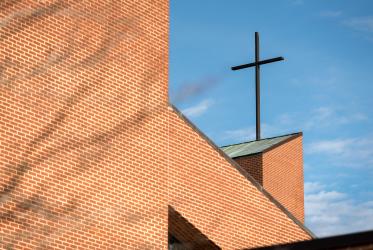Displaying 1 - 20 of 42
Churches should use their voice on climate change
26 February 2020
WCC pressing ahead with disarmament work
28 August 2019
Le COE poursuit ses travaux pour le désarmement
28 August 2019
WCC statement welcomes hopeful turn in Korea
20 June 2018
Dozens of countries sign nuclear weapons ban treaty
20 September 2017
Emily Welty: tide of hope for a world free from nuclear weapons
19 September 2017






